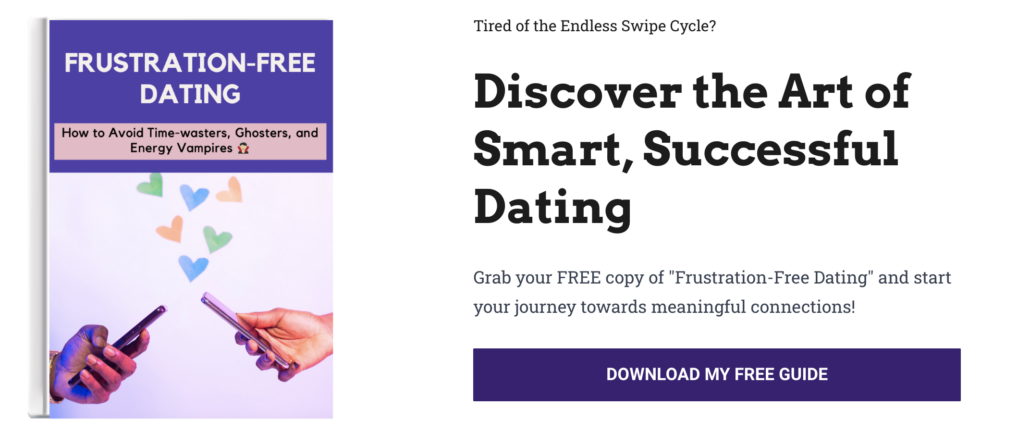Love Bombing or True Love? 10 Ways to Spot Romance Scams
“He told me I am his soulmate but won’t video chat with me.”
Online dating can feel like a thrilling adventure, but not every match has good intentions. Romance scams, designed to prey on emotions and wallets, are on the rise. Scammers create fake profiles, build trust, and manipulate their targets into sending money or sharing personal information. Spotting the red flags early is crucial to protecting yourself.
Here’s how to recognize and avoid romance scams while keeping your heart and bank account safe:
They Move the Conversation Off the App Quickly
A common tactic scammers use is asking to switch to text, email, or another messaging platform. They might say the dating app “isn’t secure” or they rarely check the app so they prefer to text or use WhatsApp. While it might seem harmless, this allows them to avoid being flagged by the app’s security systems and it disrupts the chain of information making them harder to track
Stick to communicating through the app in the early stages, especially if something about their behavior feels off. Scammers often want to control the narrative away from platform monitoring.
Their Profile Seems Perfect—Maybe Too Perfect
Does their profile read like a dream? Gorgeous photos, a great job abroad, and a life you’ve only seen in movies? Be cautious. Scammers often paint an idealized version of themselves to hook victims.
Look for inconsistencies. Does their bio seem to conflict with what you see in pictures? Do the pictures include a lot of group shots, sunglasses, or elements that make it unclear what the person actually looks like? Reverse search their photos to see if they appear on unrelated accounts or websites. Authenticity isn’t flawless—real people have quirks, imperfection, and natural details.
They Profess Love Too Quickly
Genuine connections take time. Scammers, however, often will Love Bomb you. They might declare feelings of love after just a handful of conversations. Grand, romantic language like, “You’re my soulmate,” or, “I’ve never felt like this before,” is common bait.
Be wary if declarations of love happen before you’ve even met in person. Real relationships grow over time, not overnight
They’re Always ‘Unavailable’ to Meet in Person
Does your match always have a reason they can’t meet? Scammers often claim to live or work far away, making in-person interactions impossible. Favorites include being stationed overseas in the military, working on an oil rig, or completing a project in another country.
While long-distance relationships can be real, persistent excuses for avoiding face-to-face or video calls are a red flag. A genuine partner will want to connect beyond texts.
They Create Emotional Sob Stories
Scammers excel at storytelling. They’ll often share tragic tales to evoke your sympathy. They might talk about losing a loved one, battling an illness, or facing financial hardship. This is all part of building emotional trust.
Ask yourself: Is the story consistent, or does it conveniently shift to justify a new request? Emotional manipulation is a cornerstone of romance scams.
They Ask for Money or Financial Assistance
This is the biggest red flag. Whether it’s a loan for an unexpected emergency, travel costs to visit you, or help with “frozen” bank accounts, any request for money should raise immediate alarm bells, even if it’s an unbelievable crypto investment that they believe will surely pay off in the future. It won’t!
Scammers might also frame it in ways that seem temporary or unintrusive, like asking for gift cards. And of course gift cards can’t be tracked so that allows them a clean and easy getaway. Always remember: a genuine partner won’t ask for financial help, especially so early in a relationship.
Grammar and Communication Might Not Match Their Profile
Does their polished persona on the app mismatch their writing? Scammers often use fake profiles but struggle with grammar or phrasing that doesn’t align with the professional image they project.
Watch for inconsistencies in tone, frequent typos, or clunky responses. Poor communication skills can signal that you’re not speaking to who you think. Conversely if it seems over-written or unnaturally formal, they are mostly likely using A.I. to sound more believable.
They Avoid Answering Direct Questions
When you ask simple questions, do they deflect or change the subject? Scammers avoid revealing details that could expose their lies. They might give vague answers or tell you they’re too busy to respond thoughtfully.
This is a manipulative tactic to keep the focus on emotions rather than facts. If their stories feel shallow or evasive, your gut is probably right.
Their Sob Story Leads to a Crisis
After earning your trust, scammers often stage a sudden “crisis.” They’ll say their wallet got stolen, a relative needs emergency surgery, or their business deal fell through. These situations almost always result in a plea for financial help.
Stay firm—don’t send money, no matter how heartbreaking their tale might sound. Scammers will often disappear as soon as their demands are met.
They Pressure You to Act Fast
Scammers create urgency as part of their scheme. Whether it’s needing money “today” to resolve an issue or pushing you to commit emotionally, they thrive on making you act without thinking.
If someone you’ve never met is applying pressure, take a step back. Healthy, real relationships respect time and boundaries.
Protect Yourself: Stay Vigilant and Trust Your Instincts
Romance scams prey on the desire for love and connection. Awareness is your best defense. Stay cautious by keeping the conversation on verified platforms, looking for inconsistencies, and avoiding financial entanglements.
Trust your instincts. If something feels wrong, it’s okay to walk away. Real love isn’t built on secrecy, pressure, or manipulation—it’s grounded in trust, honesty, and mutual respect.
By staying alert, you can protect yourself while searching for a relationship that’s truly worth your time and energy.
Learn more about spotting a romance scam in this episode of the Dates & Mates podcast









